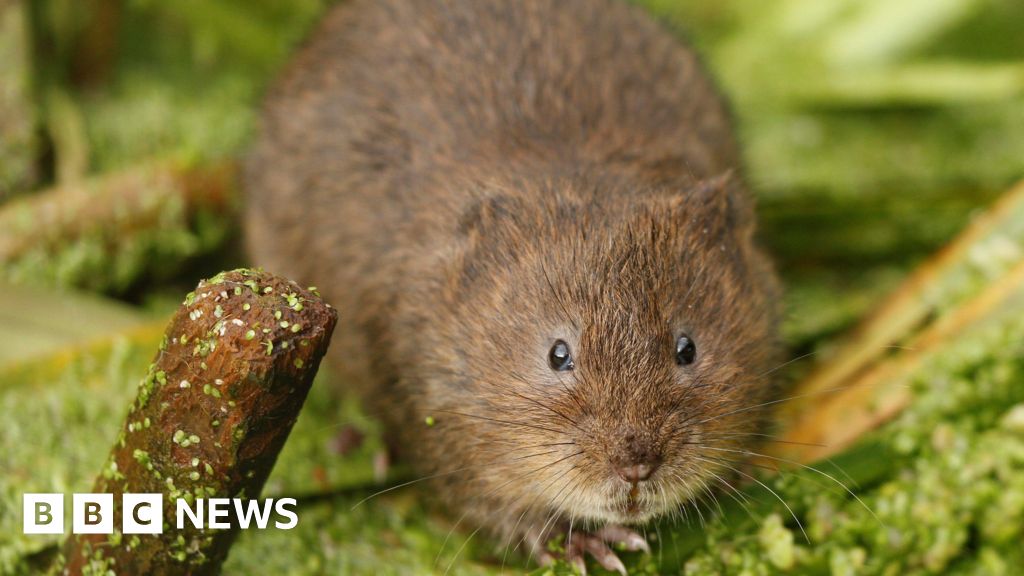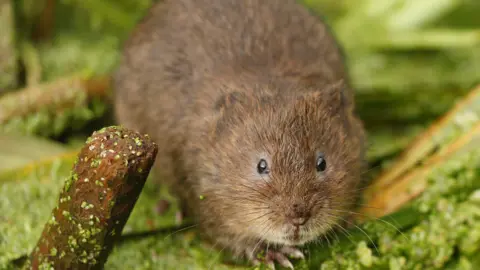 Paul Thrush
Paul Thrush
Herts and Middlesex Wildlife Trust has been committed to water vole conservation for 23 years
Conservationists have reintroduced water voles into a river for the first time in more than 20 years.
Herts and Middlesex Wildlife Trust said they had returned 100 water voles to a stretch of the Upper River Lea, on the Ayot Estate, near Wheathampstead, Hertfordshire.
The project, also supported by volunteers, the estate, and Verulam Angling Club, aims to reverse a dramatic decline in the mammal.
Josh Kalms, water vole conservation officer at the trust, said: “These animals are vital to healthy wetlands – their burrowing and grazing helps maintain riverbanks and improve biodiversity.”
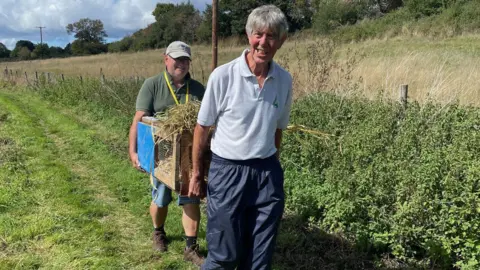 Debbie Bigg
Debbie Bigg
Volunteers carried the water voles to a bankside location
The water vole is one of the UK’s fastest-declining mammals.
Nationally, since the 1960s, its population has fallen by 90% due to habitat loss and predation by invasive American mink, the trust added.
The Ayot Estate and the angling club worked with the trust to prepare the site, and created a “welcoming environment for this important native species”, it added.
Mr Kalms said: “Water voles eat a huge range of plants species and in doing so, they move seeds around, helping to maintain varied plant cover and creating lush and wild bankside vegetation.
“They are also a key food source for native species like stoats, predatory fish, herons and birds of prey.”
The water voles, bred by the Derek Gow Consultancy in Devon, were released into temporary riverside pens to acclimatise before establishing their own burrows.
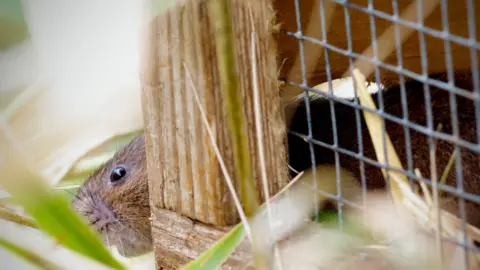 Michael Barrett
Michael Barrett
A water vole as it ventured out of its pen
Tom McLaughlin, from land agents Strutt and Parker on behalf of the landowners, said: “This project is about more than one species, it’s about bringing vitality back to the whole ecosystem.”
Barry Killinger, fisheries manager for the angling club, said: “Angling and nature conservation are closely linked – our members recognise how important it is to protect the aquatic environment and its inhabitants.
“Going forward we are happy to engage in any monitoring programme of the voles and also look forward to further introductions on stretches further upstream.”
The scheme has been funded as part of the Projects for Nature Platform.
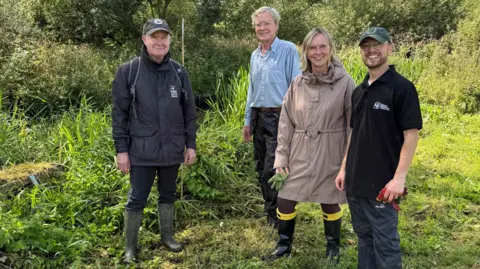 Michael Barrett
Michael Barrett
Herts and Middlesex Wildlife Trust worked with volunteers on the scheme
You might also be interested in

